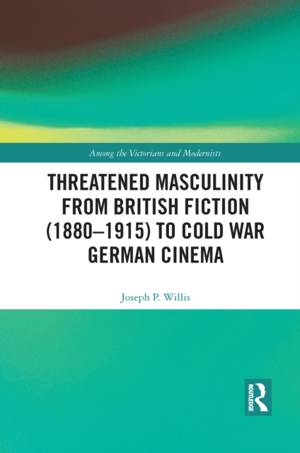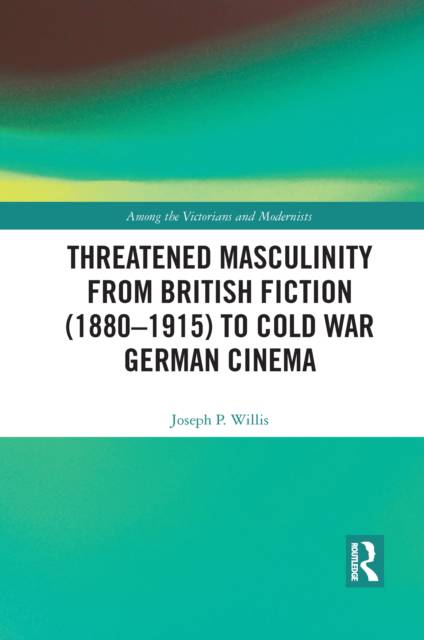
- Retrait gratuit dans votre magasin Club
- 7.000.000 titres dans notre catalogue
- Payer en toute sécurité
- Toujours un magasin près de chez vous
- Retrait gratuit dans votre magasin Club
- 7.000.0000 titres dans notre catalogue
- Payer en toute sécurité
- Toujours un magasin près de chez vous
Threatened Masculinity from British Fiction to Cold War German Cinema
Joseph WillisDescription
The impact of the Cold War on German male identities can be seen in the nation's cinematic search for a masculine paradigm that rejected the fate-centered value system of its National- Socialist past while also recognizing that German males once again had become victims of fate and fatalism, but now within the value system of the Soviet and American hegemonies that determined the fate of Cold War Germany and Central Europe. This monograph is the first to demonstrate that this Cold War cinematic search sought out a meaningful masculine paradigm through film adaptations of late-Victorian and Edwardian male writers who likewise sought a means of self-determination within a hegemonic structure that often left few opportunities for personal agency.
In contrast to the scholarly practice of exploring categories of modern masculinity such as Victorian imperialist manliness or German Cold-War male identity as distinct from each other, this monograph offers an important, comparative corrective that brings forward an extremely influential century-long trajectory of threatened masculinity. For German Cold-War masculinity, lessons were to be learned from history--namely, from late-Victorian and Edwardian models of manliness. Cold War Germans, like the Victorians before them, had to confront the unknowns of a new world without fear or hesitation. In a Cold-War mentality where nuclear technology and geographic distance had trumped face-to-face confrontation between East and West, Cold-War German masculinity sought alternatives to the insanity of mutual nuclear destruction by choosing not just to confront threats, but to resolve threats directly through personal agency and self-determination.
Spécifications
Parties prenantes
- Auteur(s) :
- Editeur:
Contenu
- Nombre de pages :
- 204
- Langue:
- Anglais
- Collection :
Caractéristiques
- EAN:
- 9781032092324
- Date de parution :
- 30-06-21
- Format:
- Livre broché
- Format numérique:
- Trade paperback (VS)
- Dimensions :
- 152 mm x 229 mm
- Poids :
- 281 g

Les avis
Nous publions uniquement les avis qui respectent les conditions requises. Consultez nos conditions pour les avis.






